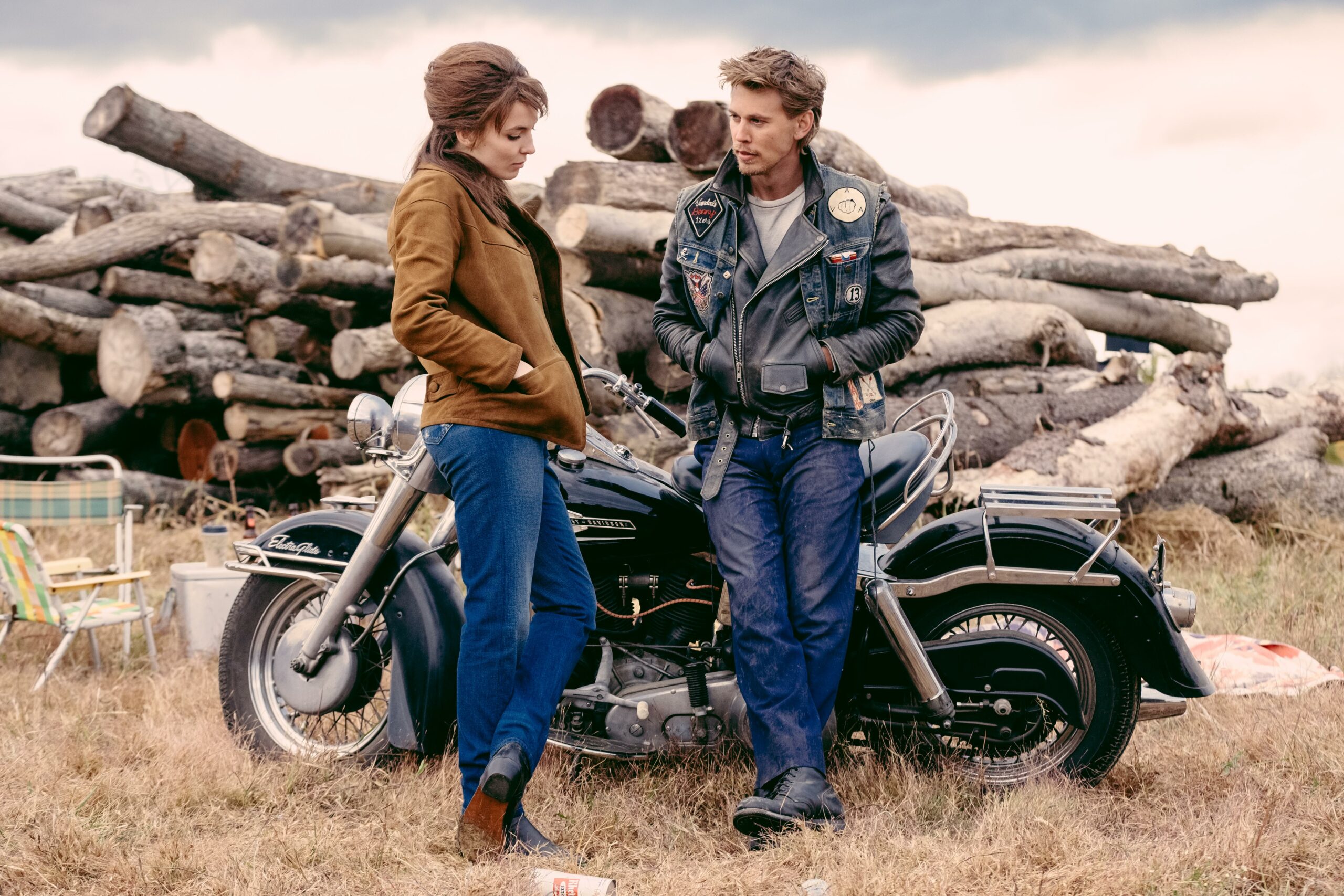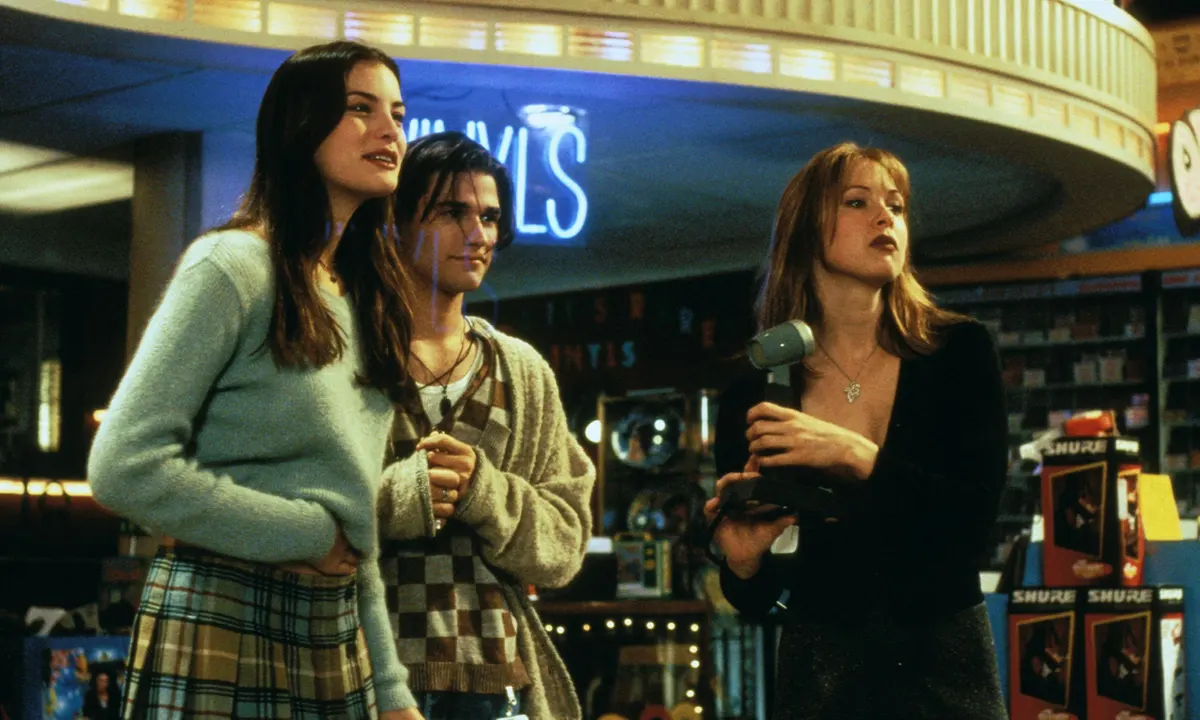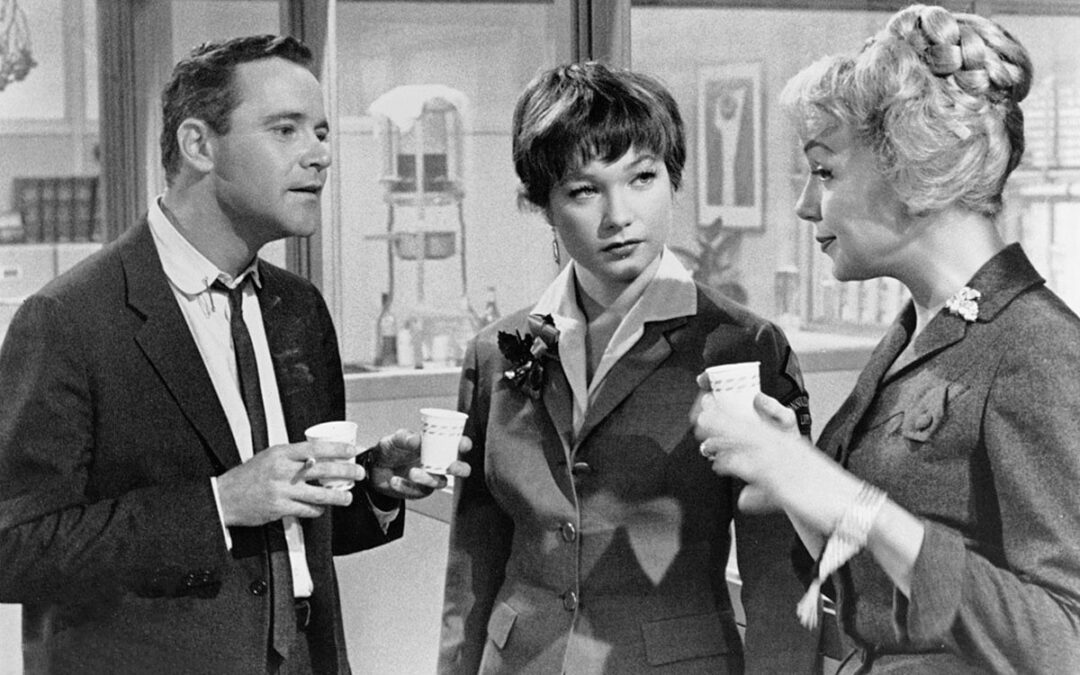WIFF’S WEEKEND WATCH LIST — 7/26
Check out our recommendations of what to watch this weekend.
Read MoreIf you need recommendations, take a look at what Vincent Georgie, Executive Director and Chief Programmer, recommends watching at #WIFF23! 299 QUEEN STREET WEST…

If you need recommendations, take a look at what Vincent Georgie, Executive Director and Chief Programmer, recommends watching at #WIFF23!
With unprecedented access to the MuchMusic archives, “299 Queen Street West” tells the story of a scrappy Canadian television upstart from the perspective of the VJ’s who at the time had no prior TV hosting experience, received no direction, no scripts and broadcasted live across the country.
The channel’s rise in popularity intersected with rap music entering the mainstream, the birth of grunge and alternative rock and pop stars caused teenage hysteria at the iconic street level studio.
Directed by Canadian Documentarian Sean Menard (The Carter Effect), the film dives into the origins and cultural impact that MuchMusic had on its viewers and artists through archival footage and interviews with some of the VJs.
Sylvie (Virginie Efira) lives in Brest with her two children, Sofiane and Jean-Jacques. Together, they form a close-knit family. One night, Sofiane is injured while he is alone in the apartment and his mother at work. A report is made and Sofiane is placed in a foster home. Armed with a lawyer, her brothers and the love of her children, Sylvie is confident, convinced of being stronger than the administrative and judicial machine.
Starring Jeffrey Wright in one of his most beautifully nuanced performances, American Fiction is both a wickedly smart satire about the commodification of marginalized voices and a bittersweet portrait of an artist forced to re-examine the terms of his integrity.
Thelonious “Monk” Ellison (Wright) is a respected author and professor of English literature. But his impatience with his students’ cultural sensitivities is threatening his academic standing, while his latest novel is failing to attract publishers; they claim Monk’s writing “isn’t Black enough.” Meanwhile, Monk’s family experiences tragedy, and his ailing mother requires a level of care neither he nor his trainwreck of a brother (Sterling K. Brown) can afford.
One night, in a fit of spite, Monk concocts a pseudonymous novel embodying every Black cliché he can imagine. His agent submits it to a major publisher who immediately offers the biggest advance Monk’s ever seen. As the novel is rushed to the printers and Hollywood comes courting, Monk must reckon with a monster of his own making.
Winner of this year’s Palme d’Or, and starring German actress Sandra Hüller, Justine Triet’s Anatomy of a Fall is a riveting portrait of a complex woman put on trial for the murder of her spouse.
Sandra (Sandra Hüller) is a successful German writer who lives in the French Alps with her husband Samuel (Samuel Theis) and their visually impaired son Daniel (Milo Machado Graner). A brilliant, decibel-bursting opening scene suggests tensions in their isolated chalet, so when Samuel is discovered dead in the snow beneath one of their windows, suspicion is quickly aroused. Did he take his own life, or was he pushed to his death? When the investigation proves to be inconclusive — its varying angles hinting at the microscopic examination to come — Sandra is ultimately indicted and put on trial.
Taut, suspenseful, and thrilling until the final moment, Anatomy of a Fall progresses like a heady puzzle that tackles the messiness of existence and the often-elusive nature of truth itself.
In one of Morocco’s oldest medinas, in the city of Salé, Mina (Lubna Azabal) manages discerning customers while her tailor husband Halim (Saleh Bakri) works diligently in silence only a few feet away. Most days Halim can be found carefully crafting traditional caftans with detailed embroidery, committing historical significance to each enduring stitch and preferring to take all the time necessary to achieve his age-old standards of perfection.
When the demand for Halim’s skill exceeds his personal capacity, he reluctantly accepts the help of Youssef (Ayoub Missioui), a soft-spoken young apprentice. The eager Youssef wants to learn everything he can from his new mentor, paying close attention to each lesson in the maalem tradition and Halim’s delicate mode of instruction. It is not long, however, before the couturier’s careful attentions to craft drift to meet Youssef’s longing gaze — while Mina watches.
With her second feature writer and director Maryam Touzani asserts her expertise in developing characters and capturing performances that redefine the measure of intimacy and tenderness in human relationships. The Blue Caftan is a story of unparalleled adoration, one centred on laughter and longing over the popular expectations of love.
There’s no business like show business — except perhaps the business of selling the bristles and brushes for robot vacuums, a cutthroat industry that pits “confident heterosexual” salesmen like Craig and Trevor against each other on a daily basis. But before Craig can shove a hose in Trevor’s mouth and turn on the water, these two big-dicked blowhards come to the startling realization that they are f*cking identical twins, raised apart since birth.
Fortunately, these are the perfect conditions to mount an old-fashioned parent trap, and so the pair swap lives to restore the nuclear family. But can love still bloom between their eccentric mother (Megan Mullally), who is so old she carries her vagina around in a purse, and their closeted father (Nathan Lane), who is obsessively preoccupied with cannibalistic, underground-dwelling sewer boys?
Dicks: The Musical is a full-blown movie musical and it is proudly queer as f*ck. Narrated by God (Bowen Yang) and adapted from a two-man stage show by Aaron Jackson and Josh Sharp, who turn in memorably manic performances as the titular twinsome dicks, this all-singing, all-dancing madness is also directed by comedy royalty Larry Charles (Curb Your Enthusiasm, Borat), so you can count on uproarious 11 o’clock numbers so unhinged, they go all the way to midnight.
The night of July 6, 2013, changed the small, picturesque town of Lac-Mégantic in Quebec’s Eastern Townships in unfathomable and horrifying ways. In a matter of minutes, 47 people were killed instantly, and more than 2,000 were displaced when an unattended train derailed nearby. What exactly transpired that night? Now a decade later, Academy Award-nominated director Philippe Falardeau (Monsieur Lazhar) revisits the event, offering viewers a detailed post-mortem of the events leading to one of Canada’s worst rail disasters. Through interviews with the families of those who died, former and current town officials and the men held responsible, this riveting and carefully crafted four-part series details the shocking sequence of decisions that ultimately led to a spill of more than 7.7 million litres of crude oil, irreversibly changing the lives of everyone in town. A true-crime docuseries with lessons for the future.
The relationship between Eugenie, an esteemed cook, and Dodin, the gourmet she has been working for over the last 20 years. Growing fonder of one another, their bond turns into a romance and gives rise to delicious dishes that impress even the world’s most illustrious chefs. When Dodin is faced with Eugenie’s reluctance to commit to him, he decides to start cooking for her.
Master of portraiture Jonathan Glazer was awarded the Grand Prix at this year’s Cannes Film Festival for The Zone of Interest, adapted from a 2014 novel of the same title by Martin Amis. The film centres on the domestic life of Hedwig (Sandra Hüller, also in Anatomy of a Fall) and Rudolf Höss (Christian Friedel), beneficiaries of lebensraum, whose family home — nestled between train tracks and gas chambers — is spitting distance from Auschwitz, the infamous German concentration camp located in occupied Poland, where Rudolf serves as commandant.
Towards the final days of the Holocaust, Hedwig is fixated on self-preservation, while Rudolf is increasingly burdened by his duties. We reside inside the family’s encampment, with background voices of ghost-like prisoners muffled by the perpetrator’s quotidian musings.
The film weds banal and overt acts of evil with unforgettable reminders of resistance. Hauntingly scored by Mica Levi and shot by Łukasz Żal, this film will stay with you for a lifetime, for better or for worse.

Check out our recommendations of what to watch this weekend.
Read More
Check out our recommendations of what to watch this weekend.
Read More
Check out our recommendations of what to watch this weekend.
Read More
Check out our recommendations of what to watch this weekend.
Read MoreIMPORTANT: By using this website, you agree to the terms of our Privacy Policy.